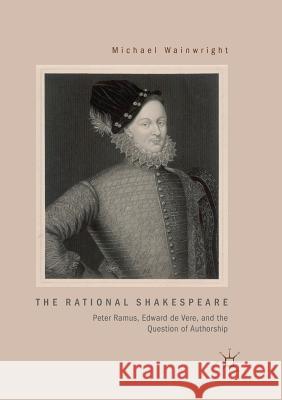The Rational Shakespeare: Peter Ramus, Edward de Vere, and the Question of Authorship » książka
topmenu
The Rational Shakespeare: Peter Ramus, Edward de Vere, and the Question of Authorship
ISBN-13: 9783030070038 / Angielski / Miękka / 2018 / 324 str.
Kategorie:
Kategorie BISAC:
Wydawca:
Palgrave MacMillan
Język:
Angielski
ISBN-13:
9783030070038
Rok wydania:
2018
Dostępne języki:
Ilość stron:
324
Waga:
0.41 kg
Wymiary:
21.01 x 14.81 x 1.83
Oprawa:
Miękka
Dodatkowe informacje:
Wydanie ilustrowane











